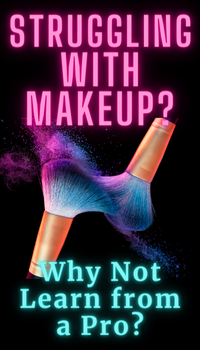Perpetual Change – Sara Buechner, Part 2

This month, we conclude our interview with classical music musician Sara Davis Buechner. She recently celebrated the 25th anniversary of her professional debut in NYC. During her career, she has performed extensively in the United States and abroad, has released several recordings, and is currently an Associate Professor of Piano and Piano Literature at the University of British Columbia. As well as being an incredibly gifted musician, she is a remarkable person who has overcome her share of adversity. She has some insightful things to say in this second installment of our TGForum interview with her.
TGForum: How old were you when you first started dealing with your gender issues?
Sara Buechner: From earliest memory I felt like a girl, and was confused as I became, say, age 3-4, and started to understand that I was not. It was really only in first grade that I comprehended fully the concrete nature of the gender divide-different restrooms, different groupings for gym, etc. Before entering elementary school, I was already going into Mom’s closets, dresser drawers, and make-up supplies regularly, trying on this and that. It just seemed OK, though by age 6 it was clear that it was not OK.
Consequently when I began first grade, I naturally played with the girls — jacks and spudball and even house where I often played Mommy. I had no problems with any of that until my first severe beating at the hands of male classmates.
TGF: You obviously travel extensively. Have you had any problems being a transgendered person, given the increased security now?
SB: Before my name was changed, I had many problems with passport control, because my old passport photo (“David”) didn’t resemble Sara. After the name change I got a new passport and the updated photo helped. I never bothered to change the gender on my passport-I think of that “M” as my Jewish Star. The passport folks don’t tend to look at the “M” or the “F” so only rarely has that come up. I always carry a few doctor’s letters just in case someone get especially nosy. Privately, I hope some day I am forced to strip for Homeland Security. I could use the millions I’d win in a harassment lawsuit!
Fortunately I had my name change in 1999 before the Draconian security days of 2001+. God help people in transition tese days. The U.S. government loves to hire uneducated morons for Homeland Security…I’m surprised there haven’t been nightmare stories all over the media.
I’ve had more subtle harassment over the years, as I suspect many gender-blended or non-traditional gender folks have experienced. You know, the extra search through the bags, the excessive wanding, the looks, the quiet back-talk. Me personal favorite is when I travel with Kayoko from Canada in the USA, and fill out a single form as a married couple. The border guards always separate us and make us fill out two forms (except for the one time we were processed by a lesbian guard.)
 The pithy comment “Y’all ain’t married HERE” is usually delivered with a smug smirk. Terrific p.r. for the USA in general and tourism in particular.
The pithy comment “Y’all ain’t married HERE” is usually delivered with a smug smirk. Terrific p.r. for the USA in general and tourism in particular.
Let’s face it, U.S. Homeland Security is an embarrassment and a disaster, and it shames every American…not to mention diminishes respect for us in every country on this planet. I had hoped that Obama and the Democrats might improve that situation. Obviously they don’t care.
TGF: Classical music is considered to be a very tradition oriented and conservative genre’. Did you experience any discrimination or problems when you transitioned? Also, how is the acceptance level in Japan and other countries to which you’ve traveled?
SB: Well, as related in the NY Times profiles on me (1998 and 2009) I had terrible troubles maintaining an active concert career, finding a teaching position when the concerts dried up, and very nearly threw in the towel on all of it. There were many “friends” who just disappeared from my life in 1998, and it is as true of classical music as of any profession that it’s not WHAT you know, it’s WHO you know. The conductors and chamber music partners on whom I relied ran away in droves and suddenly there was no one to make music with. And lots of concert persentors thought I would be had for ticket sales, so that was that.
I had on disaster in Japan at that time, applying for a guest professorship at Kobe College. At first I was told I would be hired. Then the President of the University gave the word that since I was transgendered they could not hire me. Curiously, I appreciated that level of directness and honesty, because when bigotry is in your face you can respond with: “Hey, that’s wrong!”
There are a number of Universities to which I applied where my credentials were far above those of the people they ended up hiring. Mostly I didn’t even get the courtesy of a rejection letter, from about 35 American teaching institutions.
Similarly with concerts. There are losts of pianists out there who play with less technique, commitment, achievement, audience rapport, and imagination than me, in much bigger halls with far bigger careers. It that all based on merit? Hardly. Unfortunately in classical music there are audiences who know little about the product. Frankly, they can’t tell if it’s good or bad. That’s part of the whole problem with our profession, a problem much bigger than my issues of being a transgendered pianist.
TGF: Somewhere during my research for this, I came across the statement that you don’t like to be referred to as “transsexual”. Any particular reason? Also, how much attention do you pay to gender politics and to politics in general?
SB: Well, that goes back to Wikipedia*. Of course I am transgendered (that’s the correct term, not transsexual — it’s about gender, not sex.) But as mentioned, that’s not what I do or what defines me. I, Sara Davis Buechner, am a classical pianist. And with no modesty or tact intended, a damned good one. That’s the first line. You want to talk about my sexuality, greats. Let’s put it in the last paragraph, like it is for Van Cliburn or Liberace or Victor Borge or Lang Lang or any other pianist. Not the first paragraph. I’m just asking for equal treatment, that’s all.
TGF: The work that you did for the Yamaha company for Disklavier players, how did this come about? Did you approach them with the idea, or was it the other way around? And, are there further disks in the planning stage?
SB: In 1986 I was the only one of twelve finalists at the International Tchaikowsky Piano Competition in Moscow to choose the Yamaha piano over the two Steinways available. I think the Yamaha pianos made in Japan are just fantasic-incredibly even and playable action, a bright silvery tone, incredible workmanship.
Because of that competition I was invited on my first tour of Japan in 1987, at which time I requested to become a Yamaha artist. I’ve enjoyed a wonderful relationship with the company since that time. Like many other of their Yamaha artists, I’ve made a number of Disklavier recordings for them in their incredible state-of-the-art studios in Buena Park, California. The Disklavier technology is changing all the time…it’s been a few years since I’ve looked into what they are doing, so that’s something I need to catch up on.
TGF: Since you’ve done work with other artists, is there anybody out there you’d just absolutely love doing a project with?
SB: I could see my way to doing a song with Gloria Estefan (I’d have to practice my part, not having improvising chops), or maybe the Hawai’in singing sensation Raiatea. I love her recording of Ei Nei (Just You) on a recent CD, and was jealous that she is just accompanied by electric keyboard. When I heard it, I thought: “Hey, even I can do that!”
I am always happy collaborating with dancers and plalying for films (silent movies). Those are my favorite forms of chamber music, and I am open to all styles within those media.
TGF: This is a question I always ask: what advice would you offer to other musicians, trans or not, who are just starting out? Also, basically the same question, but what advice would you offer to musicians in general?
SB: Curiously, my first thought is one of the most mundane. It’s a quote from the Julliard School catalogue, (ca. 1975): “Juillard students must be prepared to make extreme sacrifices in pursuit of their art.” How true that is!
There are lots of musicians out there. It’s important not to view the profession from the standpoint of commercial success, as your first goal at least. If you do not love what you do, love what you play, love to practice every day as a religion, well, don’t do it. Because the ultimate reward for a musician is deeply spiritual, not financial. Hopefully, being excellent equates with being recognized and making a living. But often it does not. Think of J.S. Bach serving time in prison because he could not pay his debts. There are a lot of mediocre musicians out there today who will never have to think about doing jail time from poverty. But it’s important to make a choice: do you want to be secure, or do you want to be Bach?
Maybe that’s a bit high minded, because how many of us have talent at the level of Bach, after all. But as Woody Allen said in his movie Manhattan: “No, I don’t really think of myself as Jesus Christ but I have to model my life after somebody!” Better to aim high and risk failure, than to aim low and reap success. The ultimate musical reward is not the applause of the crowd but the realization of one’s infinite humanity.
TGF: Since you’ve just celebrated your 25th anniversary of your professional debut, any idea what the next 25 might have in store?
SB: Oh goodness, the next 25, the next 50, the next 75, who knows…I’d just like to keep growing and learning. And I pray my fingers stay loose.
( *Ms. Buechner has argued with Wikipedia concerning how she’s portrayed in their brief biography of her. In the most recent posting, the mention of her having SRS in 1998 is made, with further reference to her not liking the term “transsexual”. For more information on Ms. Buechner, please check out her website. )
Category: Music











